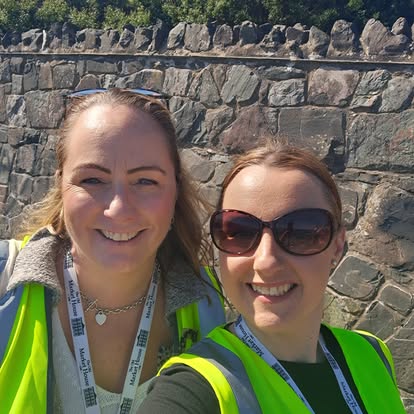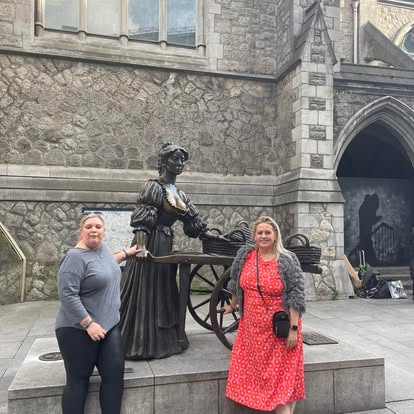Wellbeing at KWC

At Kilcooley Women’s Centre, we believe that when our staff are well, the whole organisation thrives. That’s why wellbeing isn’t just a programme — it’s woven into how we lead, support, and grow together.
Our Wellbeing Commitment
We commit to creating a workplace where staff feel valued, supported, and empowered — physically, mentally, emotionally, and socially. We acknowledge the pressures faced by those working in community, social, and support settings, and we take seriously the responsibility to care for those who care for others.
We provide regular training and support, including mental health awareness, stress management, and resilience skills.
We promote flexible working practices and regular opportunities to rest and recharge.
We maintain open lines of communication, safe spaces, and confidential support, so that staff can speak up if they feel overwhelmed or need help.
We encourage a culture of peer support, “checking in” with one another, and building connection across teams.
We review workloads and processes to reduce avoidable stress and ensure that staff have what they need to do their best.
We commit to continuous improvement — we regularly consult with staff to understand what’s working, what’s not, and how to make things better.
Voices from Our Team
“I feel valued and seen here — when things get heavy, I know I’ll be listened to and supported.”
“The wellbeing trainings gave me tools not just for work but for life — I’m more confident in handling stress.”
“Because KWC cares about balance, I can better manage my personal life alongside my role without burning out.”
These are just some of the real stories from staff describing how a wellbeing culture at KWC makes a difference.



Our Wellbeing Framework
We view wellbeing in a holistic way. Some of the pillars we focus on include:
| Dimension | What We Do | Why It Matters |
|---|---|---|
| Mental & Emotional | Peer support, counselling referrals, mental health workshops | To help staff feel psychologically safe and resilient |
| Physical & Health | Encouraging movement breaks, promoting healthy habits, occasional wellness events | Because physical health affects energy, mood and performance |
| Social & Connection | Team check-ins, social time, connection across departments | Strong relationships are a protective factor against stress |
| Work Design & Load | Regular reviews of workloads, role support, clear expectations | To prevent overwork and burnout |
| Professional Growth | Mentoring, supervision, training pathways | Because growth and purpose fuel satisfaction and wellbeing |
How You’ll See This in Practice
Regular wellbeing check-ins built into one-to-ones and team meetings
Scheduled wellbeing workshops (e.g. stress, boundaries, self-care)
Leadership modelling: managers openly share when they need to rest or pause
Mechanisms for feedback and anonymous suggestions about workplace stressors
Rotation of duties / sharing of load where possible to avoid overburdening
Peer mentors or “wellbeing champions” who can act as trusted points of contact
Your Role in Our Culture
Wellbeing is a shared responsibility. You help shape this culture when you:
Speak up if things feel overwhelming
Offer support to colleagues when you can
Take your rest, breaks and leave — it’s not selfish, it’s necessary
Suggest ideas or improvements based on your experience
Use the tools and training we provide to help yourself thrive
